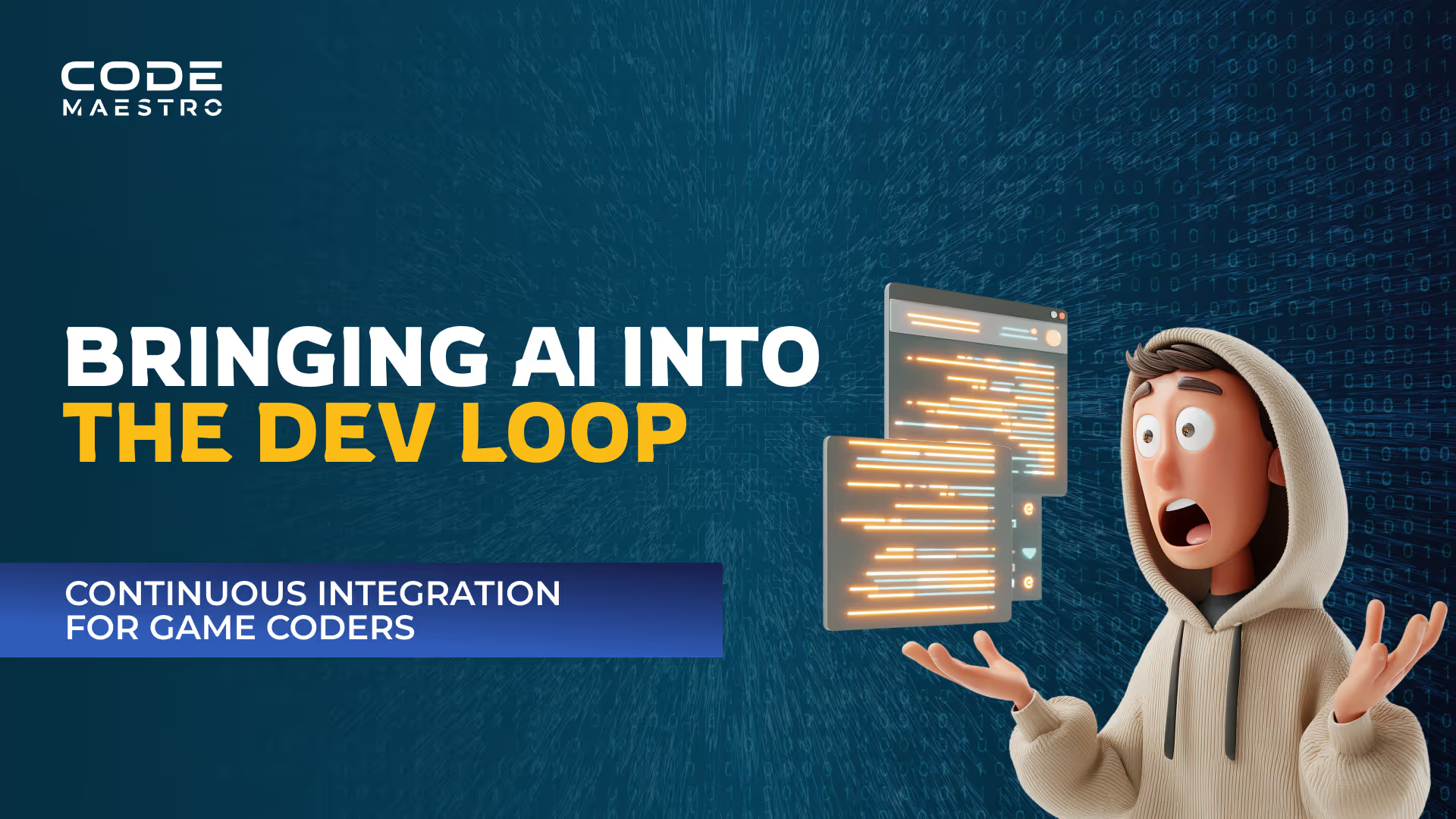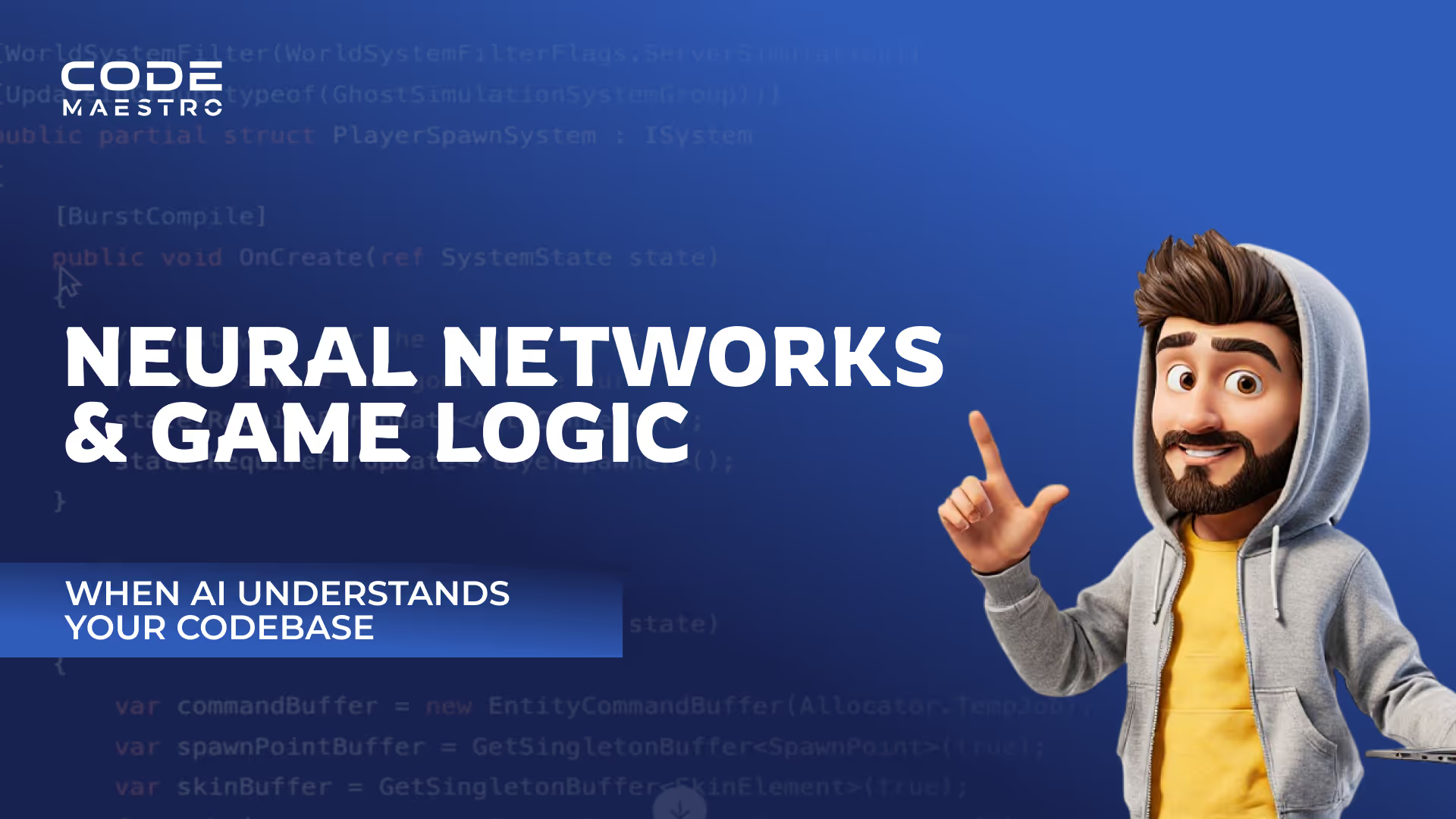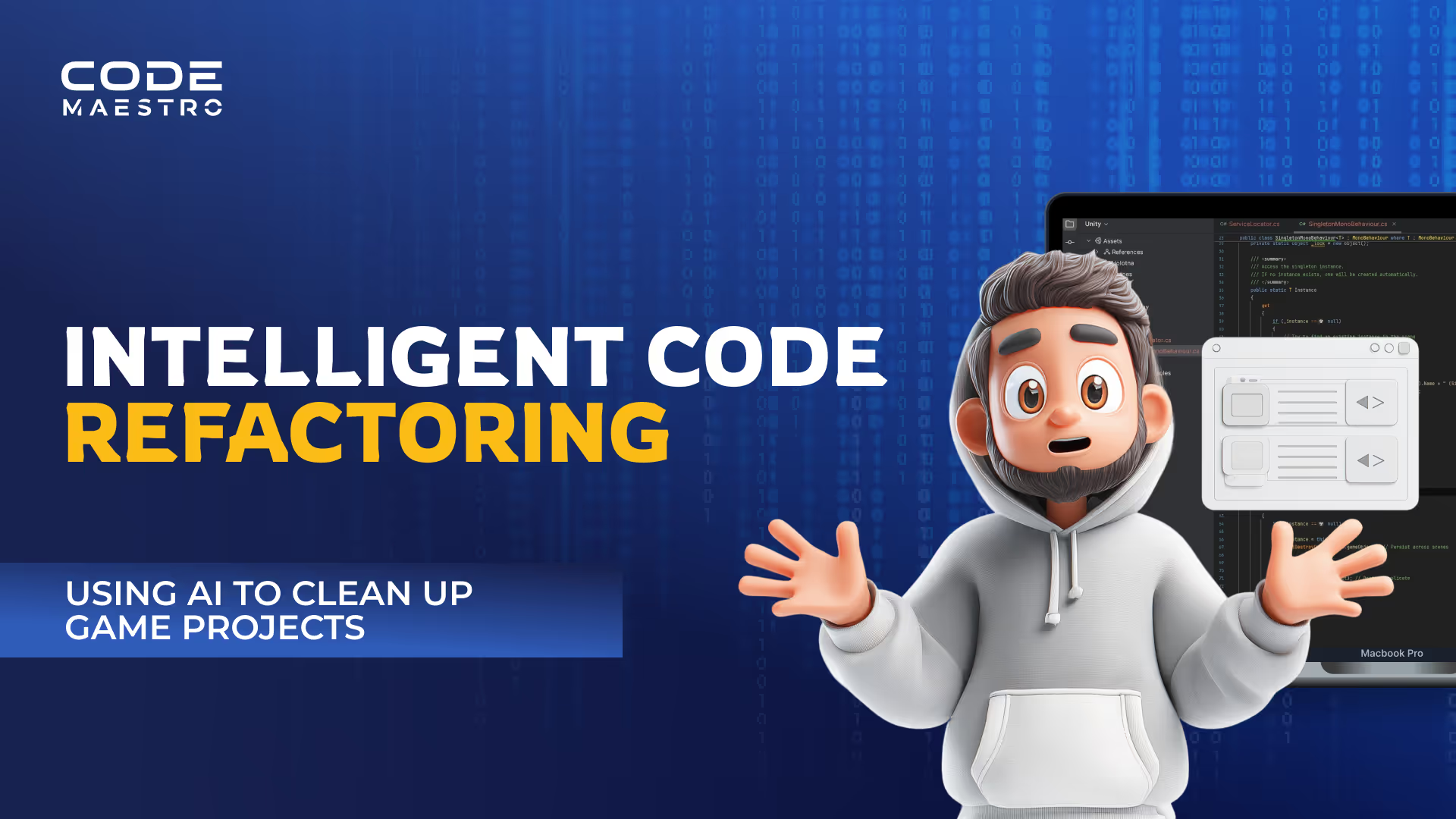Code Smarter, Not Harder: AI-Driven Refactoring in Game Development
Table of Contents
What Is Code Refactoring and Why It’s Crucial in Game Dev
Code refactoring is the process of improving the internal structure of code without altering its external behavior. In game development, where performance and scalability are everything, refactoring plays a critical role. It helps developers keep code readable, reduce bugs, and make room for new features without breaking old ones.
When games grow in complexity — adding mechanics, visual effects, network layers — the codebase can quickly become tangled. Clean, well-structured code ensures:
- Maintainability: New developers can understand and work with the code faster.
- Performance: Leaner, optimized code runs smoother, especially on lower-end hardware.
- Scalability: Adding new weapons, levels, or AI systems becomes safer and faster.
In fast-paced dev cycles, this kind of clarity is essential.
The Challenges of Manual Refactoring in Large Game Codebases
Manual refactoring might work fine for small projects — but when you’re dealing with tens of thousands of lines, spread across multiple systems and platforms, the task becomes overwhelming.
Some of the most common challenges include:
- Time-Consuming: Reviewing and rewriting code manually eats up hours or even days.
- Error-Prone: Small changes can ripple across the system, introducing hard-to-find bugs.
- Breaks Workflow: Constant back-and-forth between testing and debugging disrupts momentum.
For game developers working on deadlines or trying to prototype quickly, these obstacles often discourage necessary cleanups.
How AI Assists With Refactoring
This is where AI-driven tools come into play. Instead of relying on manual edits and risky guesswork, AI can analyze your codebase, detect patterns, and propose safe, efficient improvements — instantly.
AI-powered refactoring tools assist by:
- Identifying Opportunities: Spotting duplicated code, long functions, or poor naming automatically.
- Suggesting Solutions: Proposing best-practice improvements based on established design patterns.
- Automating Routine Tasks: Performing bulk changes like renaming or method extraction across files.
No more guessing whether a variable is used in a hidden script — AI maps it all out with precision.
The Benefits of AI-Powered Refactoring
Using AI in your refactoring workflow brings major advantages that go beyond just saving time. It fundamentally improves the development process:
- Cleaner Code: Easier to read, easier to teach, easier to debug.
- Improved Performance: AI can suggest performance-friendly refactors, such as avoiding unnecessary object allocations.
- Reduced Technical Debt: Prevents messy legacy code from slowing down future updates.
- Faster Development Cycles: With less cleanup overhead, teams can ship features more quickly.
Whether you’re a solo indie developer or part of a large studio, the impact is real — smoother collaboration, fewer regressions, and a better final product.
Practical Examples of AI Refactoring in Games
To see the power of AI-assisted refactoring in action, consider these common scenarios:
- Renaming Variables or Functions: Instead of manually updating every instance, AI tracks and renames all references project-wide.
- Extracting Methods: Long update loops or condition-heavy scripts can be broken into smaller, named methods for clarity.
- Simplifying Logic: Complex if-else chains or nested switches can be flattened into cleaner, easier-to-follow structures.
AI doesn’t just find issues — it offers real, tested solutions developers can approve or customize.
How Code Maestro Helps Developers Refactor Smarter
Using AI in your refactoring workflow helps reduce risk, improve structure, and accelerate iteration — especially in large and complex game projects. Code Maestro enhances this process with deep project awareness and agent-based reasoning.
- Safe Structural Changes
Code Maestro analyzes dependencies between classes, methods, and assets to predict how changes will affect other systems — helping avoid hidden regressions or gameplay side-effects. - Smarter Refactors, Not Just Rewrites
Its refactoring agents understand your game’s architecture and offer focused improvements — such as breaking down monolith controllers or modernizing obsolete input logic — without rewriting what already works. - Architecture-Aware Suggestions
Instead of generic rules, Code Maestro makes decisions based on your actual project structure, usage patterns, and context — ensuring refactors are aligned with your codebase, not against it. - Faster Modernization of Legacy Code
Legacy systems like player controllers or UI state machines can be safely restructured without disrupting dependent modules — saving hours of trial-and-error.



